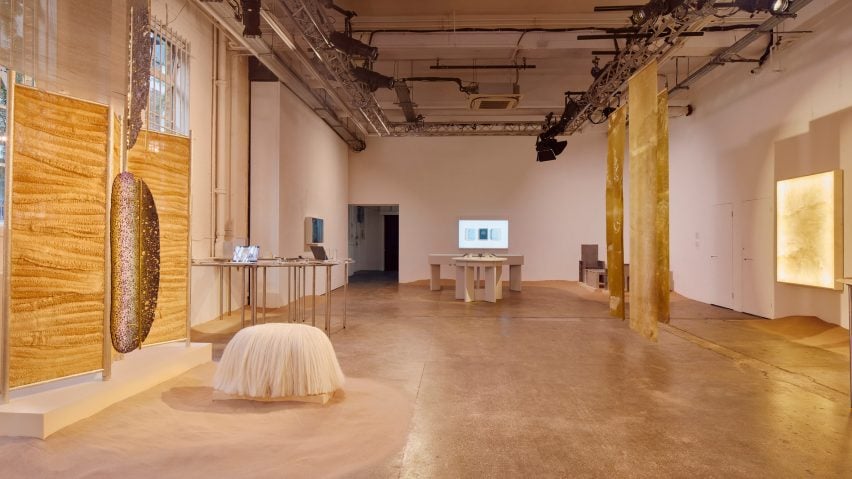
Design You Can Feel exhibition opens during LDF
Furry seating, biomaterial lights and tactile AI devices feature in Dezeen and ASUS Zenbook's Design You Can Feel exhibition, which is open to the public until 22 September.
Taking place as part of London Design Festival in Shoreditch from 17 to 22 September 2024, the exhibition explores materiality, craftsmanship and artificial intelligence (AI).
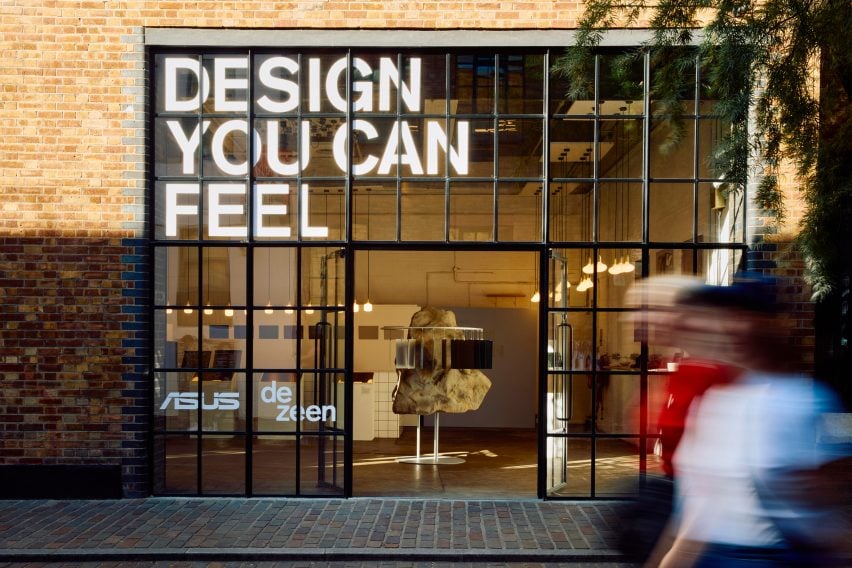
The exhibition spotlights ASUS's proprietary material Ceraluminum, which was developed for its Zenbook laptops.
Ceraluminum combines the lightness of aluminium with the durability of ceramics, resulting in a distinctive nature-inspired hues that make each object unique.
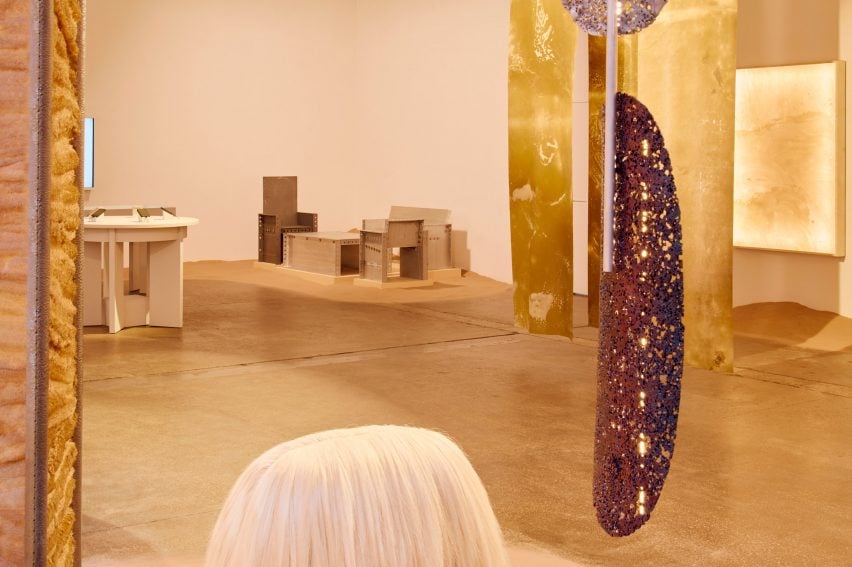
Dezeen selected six product and industrial design studios to explore how material qualities such as form, colour and texture can be combined to create objects or moments that engage the senses.
Each of the pieces in the exhibition – which span furniture, lighting and installation design – express the qualities of Ceraluminum in different ways.
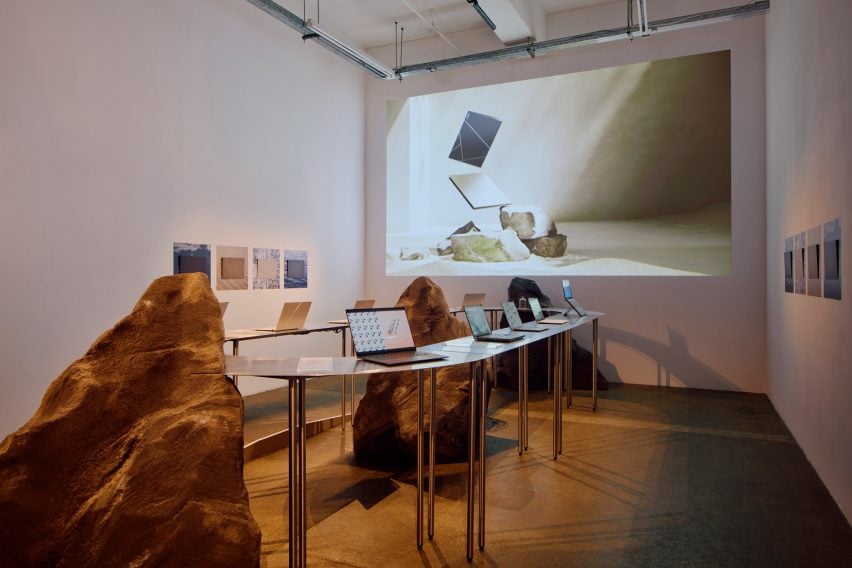
Visitors navigate through a space shaped by sculpted sand dunes, connecting the aesthetics of the natural world with new technologies.
The exhibition includes a specially commissioned piece crafted from Ceraluminum by Future Facility, the design and research studio led by distinguished designers Kim Colin, Sam Hecht and Leo Leitner.
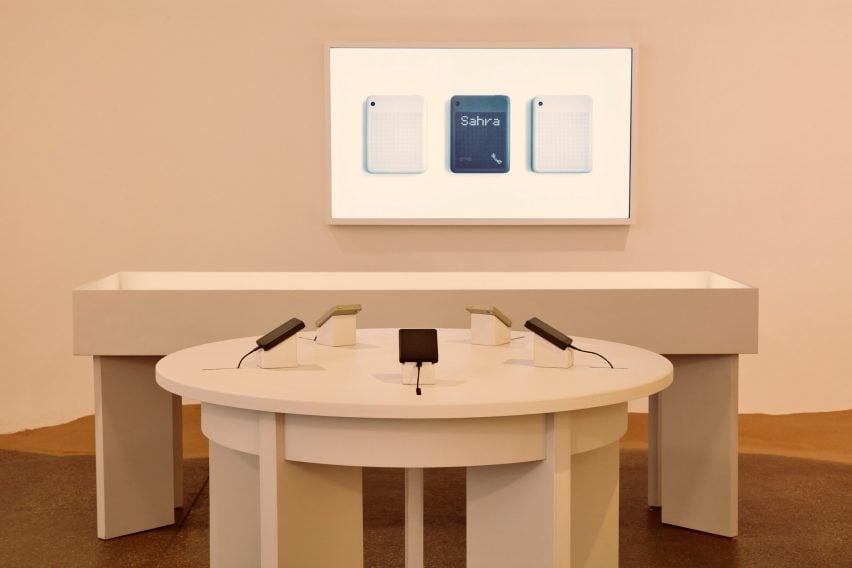
Called SUSA, the small conceptual AI device integrates the functions of a smartphone, tablet or portable computer while minimising digital distractions such as intrusive entertainment and social media.
By hiding the screen behind a tactile perforated surface crafted from Ceraluminum, the design invites users to focus on the physical object itself, to create an example of what the designers call "calm technology."
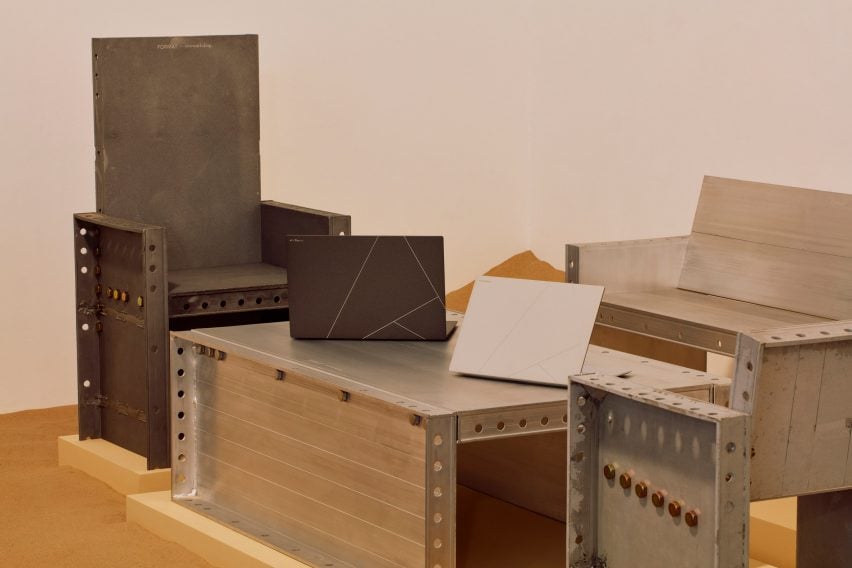
South Korean design studio Niceworkshop presents its Aluminium Formwork (AL - FORM) series of durable seating and tables, which are made using old skyscraper formwork used in construction to cast concrete structures.
Especially for this exhibition, the lounge chair was ceramised by ASUS using its patented Ceraluminum process.
Both the lounge chair and Future Facility's SUSA device mark the first time Ceraluminum has been applied to objects other than the ASUS Zenbook.
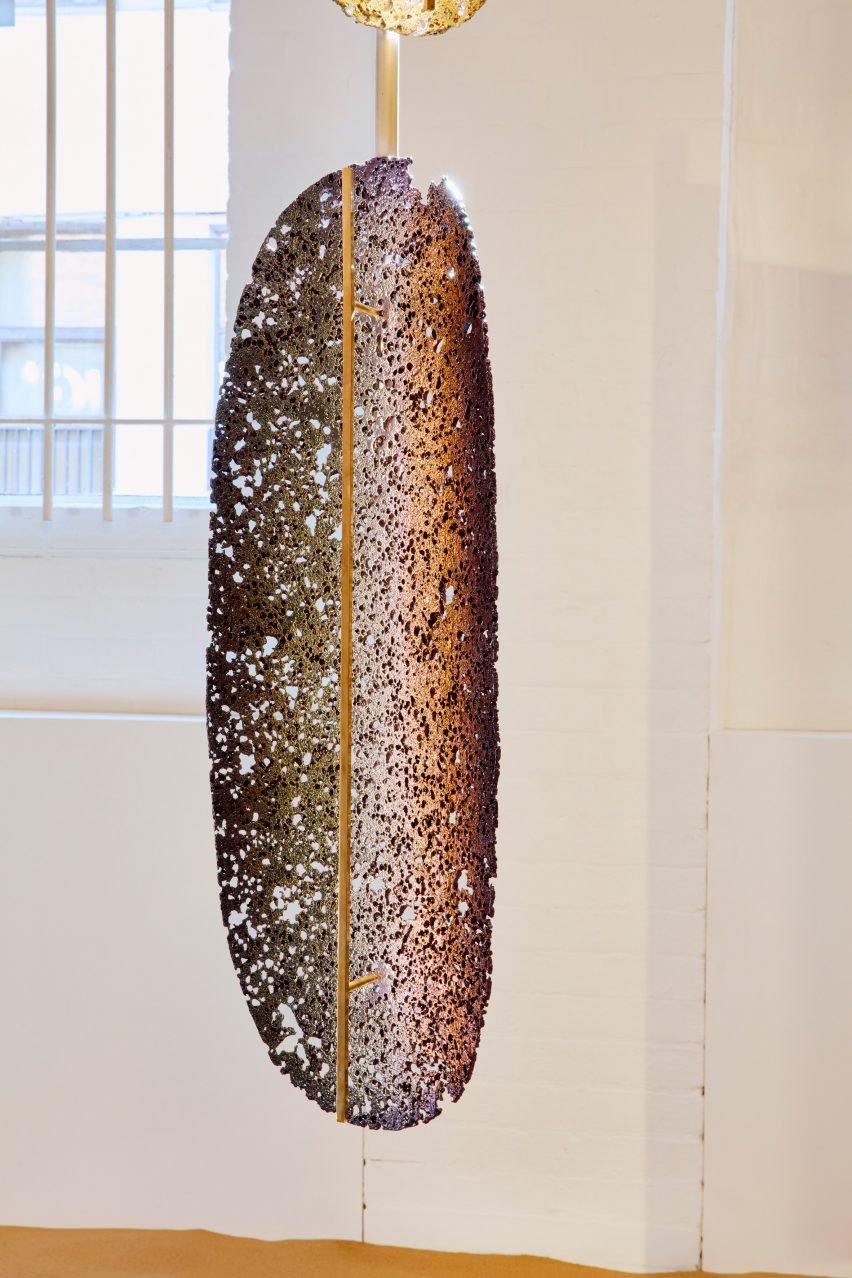
Studio Furthermore has created a series of suspended lighting elements that resemble lava stone titled Quasar Lamp. These are hand-formed in thin slivers of aluminium foam, sourced from discarded car wheels.
Also on display is Mexican designer Fernando Laposse's furry Sisal Pup Bench crafted with a fibre derived from the leaves of the agave plant and his Loofah Divider, which repurposes the edible fruit as a versatile and valuable material.
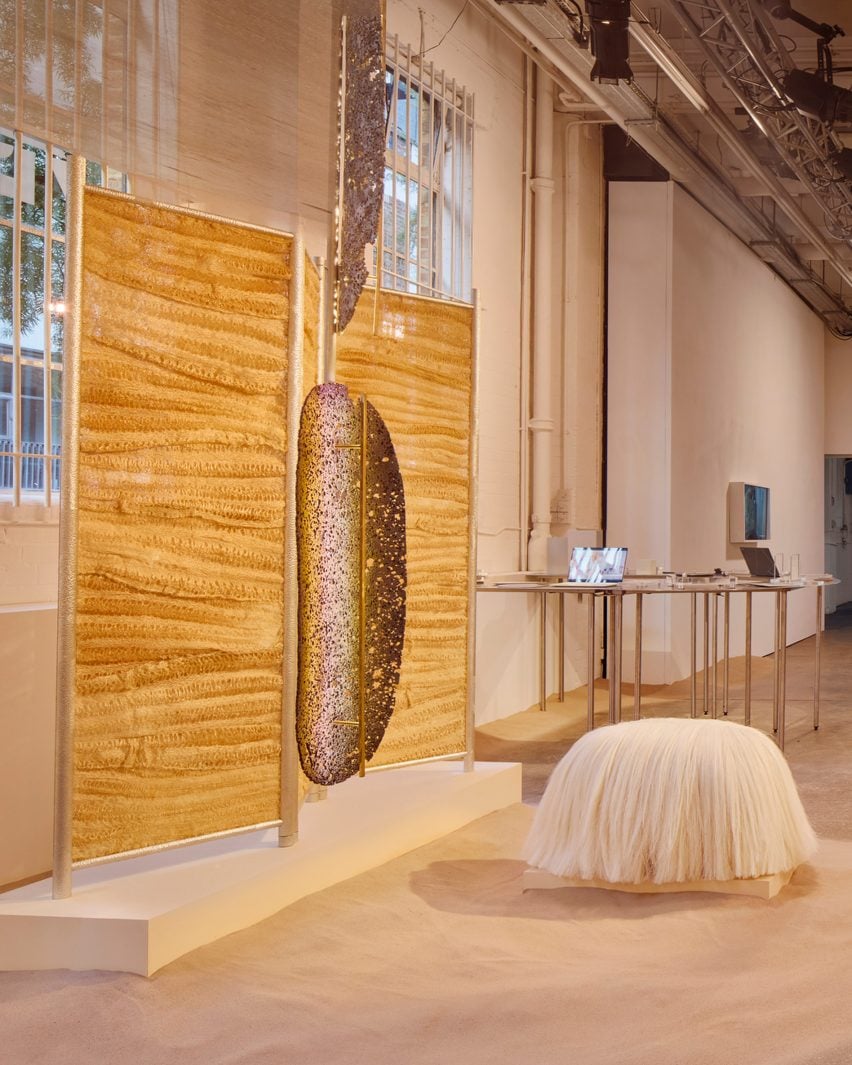
Danish practice Natural Material Studio is debuting new lighting pieces featuring the studio's handmade bio-textiles created from a mixture of bio-polymers, natural softeners, chalk and clay.
Also on display are the studio's bio-textile tapestries, which are handmade from protein-based biopolymers, natural softeners and chalk and cast using the studio's own technique called Procel.
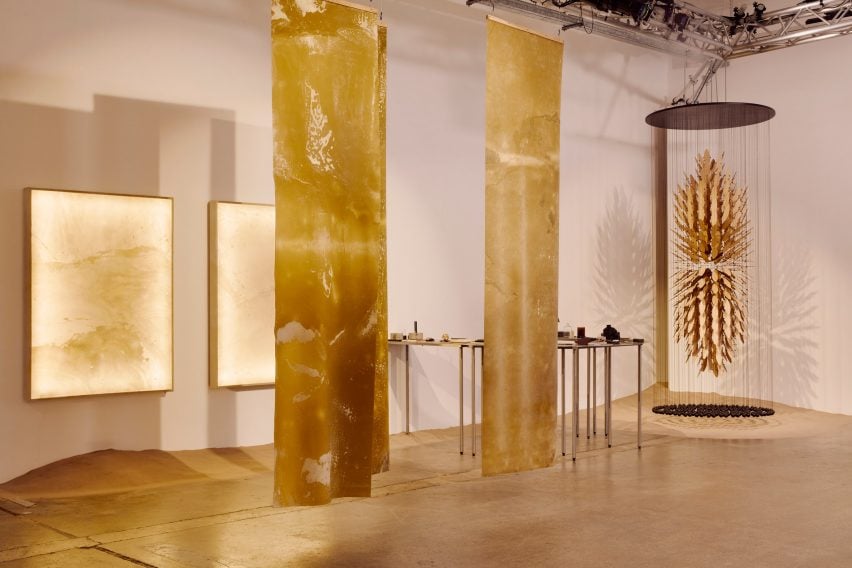
British artist and designer Giles Miller has created a floor-to-ceiling sensory installation called Awaken for the exhibition.
The installation is made up of over 1,800 components, including hundreds of 1mm-thick solid timber petals that are positioned in precise angles of rotation and incidence to create rhythmic patterns.
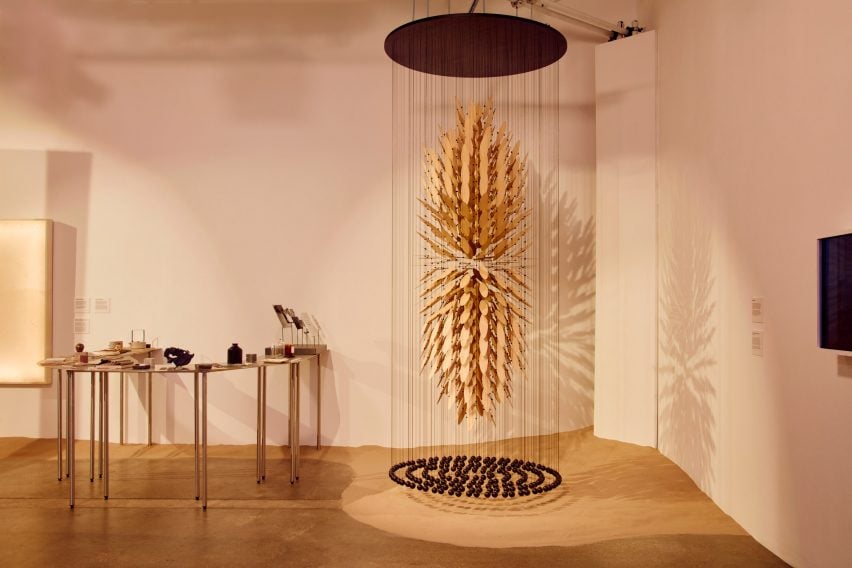
The exhibition culminates with an interactive zone in which visitors can learn about the design story behind ASUS Zenbook and have a hands-on demonstration of its special features.
These thin and light ultra-portable premium laptops feature advanced AI tools and are clad in the proprietary Ceraluminum material.
The photography is by Mark Cocksedge.
Design You Can Feel takes place during LDF
Design You Can Feel will run from 17 to 22 September at Protein Studios in Shoreditch during London Design Festival. Find out more information including opening times at: dezeen.com/designyoucanfeel.
London Design Festival 2024
London Design Festival 2024 takes place from 16-22 September 2024. See our London Design Festival 2024 guide on Dezeen Events Guide for information about the many other exhibitions, installations and talks taking place throughout the week.
Partnership content
The Design You Can Feel exhibition is a partnership between Dezeen and ASUS Zenbook. Find out more about Dezeen partnership content here.